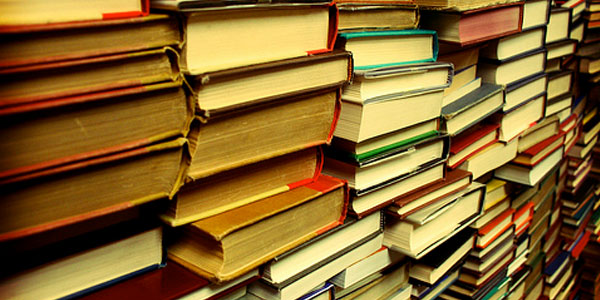
By Leeland Lee
Over the past few decades the canon of the Asian American experience has been built, in large part, from the work of contemporary female writers like Amy Tan, Maxine Hong Kingston and Gish Jen. More recent arrivals to the literary scene such as Jhumpa Lahiri and Lan Samantha Chang have also contributed to molding our modern day perception of Asians living in America.
These women are all dazzling writers who transcend their ethnic labels with their knack for story-telling and exquisite prose. Their stories are often complex and highly individualistic. The diverse origins of these female Asian writers have undoubtedly enriched their work, but there is, at the same time, a commonality about these women: They have all, every single one of them, chosen interracial partners. They are all married to white men.
Indeed, across the country interracial marriage is on the rise, according to a recent study from the Pew Research Center. Out of a total of 275,000 new interracial marriages in 2010, roughly 14% of these involved Asian-white pairings. Further breaking down the statistics, 17% of Asian men intermarried, compared to 36% of Asian women.
In general interracial marriage should be regarded as a true positive. It is the most crucial testament to the grand assimilation of diverse cultures into the fabric of our society. What is somewhat unsettling, however, is not that interracial marriages occur; it’s the disparity by which Asian men and Asian women choose spouses of a different race.
Among the most influential female Asian American writers, it is self-defeating to speculate or even comment upon the individual reasons for their mate choices. People fall in love with other people for a variety of reasons, trivial to everyone except for the two intimates. Yet when one considers these women as a group, it is hard not to feel as if a conscious decision has been made at the intersection of marriage and race. As the group that comprises one of the loudest and most permanent voices among the Asian American community—a community that is in sore need of voices—these women can be interpreted, rightly or wrongly, as having decided as a collective that white men are superior marriage partners.
This is problematic when one considers the fact that the work of all writers is guided by their diverse experiences in life. Thus, when female Asian writers invariably choose white husbands, it is hard not to imagine that their collective literary output will inevitably be tinged by these choices and, to some degree, homogenized.
Similarly problematic, the collective mate choices of these women writers can sometimes raise suspicions of ulterior motives even in their fictional writings. In some passages of The Joy Luck Club, for instance, Amy Tan portrays Asian men as cold, selfish and chauvinistic. Given the marital track record of her peer group, one might instinctively wonder—again, rightly or wrongly—whether the author possesses an undercurrent of self-hatred. When the original Tiger Mom, Amy Chua, praises her Jewish husband, one might reflexively wonder whether she is also implicitly condemning Asian men.
Again, this is not meant to be a criticism of the choices made by each of these women as individuals. Indeed, a significant reason why these writers have all chosen white spouses is likely due to external circumstances—a byproduct of the relative absence of Asian Americans in literary circles. For this some of the blame can be leveled upon the sometimes overt, but usually unintentional, biases of the publishing industry. However, culpability almost certainly also lies in a culture that has traditionally pushed their children towards “safer” professions in medicine and engineering, at the expense of producing highly original thought leaders.
While Asian female writers may not encounter many Asian men at work, they almost certainly encounter Asian males outside of it, if we are again to invoke the doctrine that good writing is inspired by personal experience. In order to create believable Asian male characters, each of these women must have engaged in extensive social interaction with Asian males in real life—at least some of whom, one hopes, should have been marriage material. Thus, the absence of Asian males in literary circles can only partially explain the collective imbalance of mate choice among Asian American female writers.
Whatever the reasons, it remains an undeniable fact that the most influential Asian female voices today are betrothed predominantly, if not universally, to white men. Viewed from this lens, one might be struck at best by a sense of ambivalence towards assimilation, and at worst by suspicions of insincerity or even cognitive dissonance in the writings of these women as a whole. If Amy Chua truly believes that a militant style of parenting, which she links ostensibly to her Asian identity, is most effective for raising children, then why did she choose in the end to bear children with a non-Asian?
Perhaps the most glaring consequence of this trend might be exemplified by a recent commentary detailing the unexpected rise of the New York Knicks star Jeremy Lin. Deanna Fei, in The Huffington Post, relates an anecdote where her husband is shaken after observing a racially charged incident directed against a group of Asian men at a Knicks game. She writes:
The incident crystallized for him, as the soon-to-be (non-Asian) father of an Asian American boy, what our son might be up against, like too many Asian males before him: a world where ‘Asian’ was still wielded instinctually as a dirty word—and as a synonym for being the opposite of a man.
Given the collective marriage choices of Fei and her literary peers, given the discrimination and worse, self-discrimination all Asian Americans have encountered in this country—can one really be blamed for thinking that there is a loss of credibility in her prose, that her words ring somewhat hollow? Can one really be blamed for wondering whether Fei herself may have also bought into the stereotyped notion of the emasculated Asian male—until now?
ABOUT THE AUTHOR: I’m a freelance writer.







